When Gilroy Solis of Wyomissing was traditional college age, he was enlisted in the military, serving in Iraq. Stephen Croft of Robesonia was working in his father’s business. Sheila DaDamio of Exeter Township dropped out of high school, opting for a GED instead. These may not sound like college success stories, but that’s exactly what they’ve become for five people who went back to school as non-traditional students at berks county’s colleges and universities.
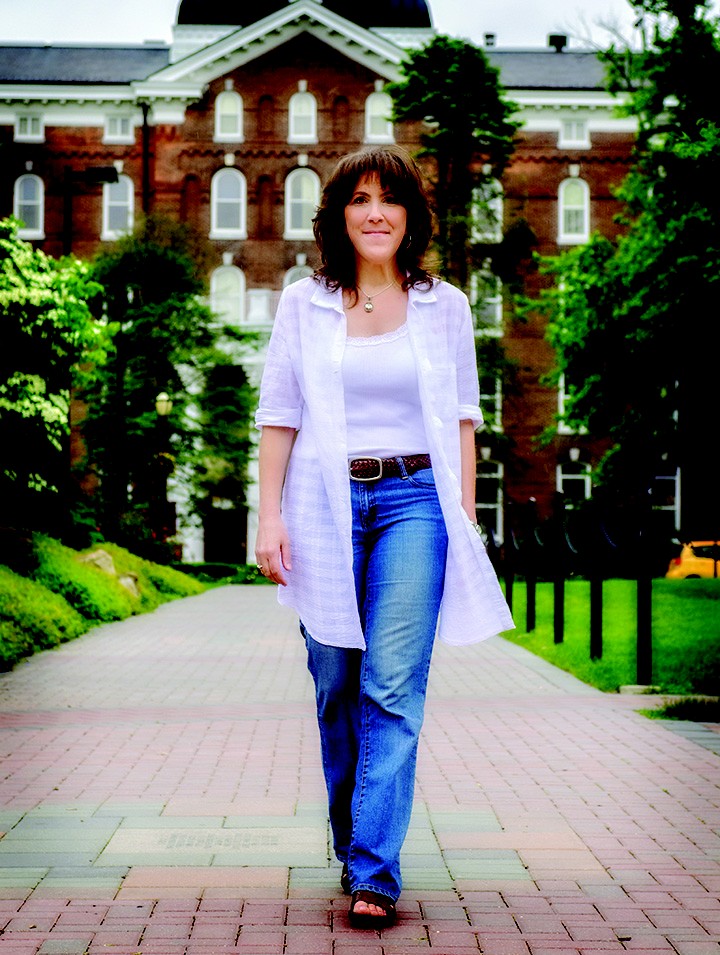
When Cheryl Geiger Sheeler of Leesport graduated from high school in 1978, she dreamed of becoming a commercial artist. Unfortunately, she says, “With all the teenage procrastination and ignorance I could muster, I applied too late to Kutztown University.” Refusing to enroll as a general art major or apply again the following year, Sheeler instead went to community college and was hired to work in a law firm, a position she held for 25 years.
But when the attorney she worked for retired, Sheeler found herself at a crossroads. Her children were grown, her husband was pursuing his dream of a political career as Recorder of Deeds, and for the first time since she was 13, Sheeler was out of work. She realized that her one regret in life was not pursuing her degree in art, so she went back to Kutztown.
Sheeler loved the program. “In three and a half years, I missed one class,” she recalls. “I was in the emergency room, and they let me out in time, but my husband said, ‘You are not going to class.’”
Being the oldest student in class was never a problem for Sheeler. “I had this great relationship with the kids because I had the same love of art as they did,” she says.
One thing she does feel held her back, though, was computer skills. “I didn’t feel like I could keep up,” she says. In computer design class, “the professor was moving so fast, and I just sat there. I was so lost.” But, she says, “It got easier as I went along.”
All the perseverance was worth it when Sheeler graduated, a day before her 51st birthday.
Today, she doesn’t regret the timing.
“I know that had I done this when I was 18, I don’t think I would have had as good an experience. I’m glad that I did it, and I’m very proud of myself.”
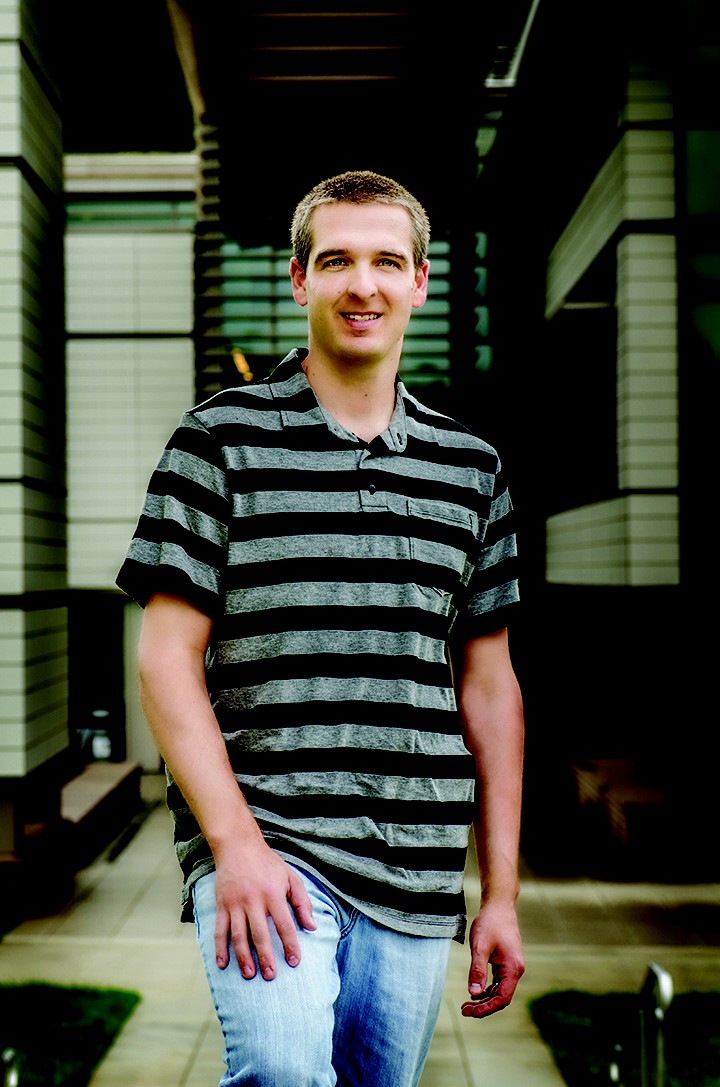
After high school, Stephen Croft started on the traditional college path, preparing to be a secondary physical education teacher. But two years into his education, he left college to work in his family’s business. “I knew there was definitely a position for me,” he says, “and also I had met the woman who is now my wife.”
He ran the office at Croft’s Service Center for eight years, until he discovered a different goal. “After having children of my own,” he says, “I realized my real passion in life was to work with children.” So Croft went back to school at Penn State Berks, this time studying elementary education.
“I think as a returning student, you take it a lot more seriously,” he says. Having experienced college both as a traditional and non-traditional student, he looked at his young counterparts and saw himself the first time around. “I told a lot of them: you need to focus on what you’re doing.” In fact, several students who were considering dropping out of college decided on Croft’s advice to give it another semester.
But making time for school was not easy. Croft would go directly from work to class, not getting home until 10 at night, when he would do his schoolwork before bed. “It was incredibly difficult,” he says.
About his May 2012 graduation, he says, “I rank it up there with the birth of my first child and marriage to my wife.” He says it’s an achievement for his family as much as for him, pointing out their sacrifice was “far beyond anything I did. I just did the schoolwork."
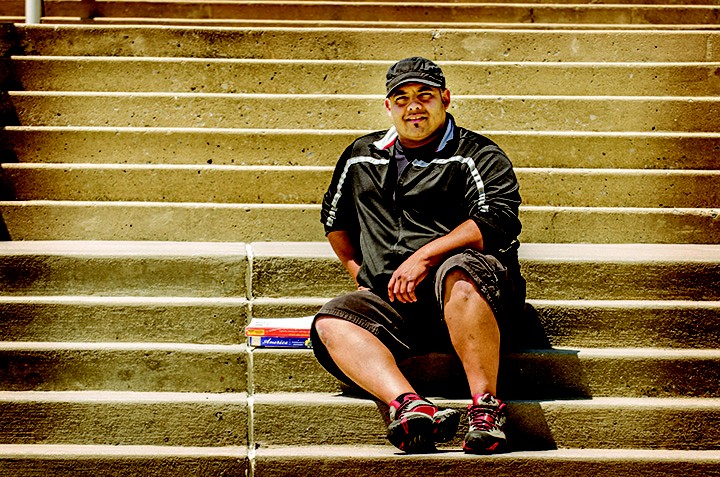
For Gilroy Solis, college was not an option he had ever really considered. “High school to me was a hassle,” he recalls. “I had a girlfriend. She was the center of my life. School was the third or fourth thing I worried about.”
Solis went into the military after high school, serving 15 months in Iraq. But when his military service ended, “It really hit me,” Solis says. He thought, “You’re out of the military; now what are you going to do?” His first answer wasn’t college, but private security work. “Before I knew it, I was on a plane to Kuwait.” Over the next few years, working in various locations around the world, Solis met his wife in Mexico and they had their first child. “My son was born one minute and the next we were on an airplane.” This time, the destination was Berks County, where the family settled. Solis found work with an organization that offered to pay his college tuition and he eventually enrolled at Alvernia University.
“I’m too dumb to be in college; that’s what the little guy on my shoulder was telling me,” Solis says. But he didn’t let that stop him. When he goes to class, Solis says, “I put on my game face. I really pay attention in class. I have my eyes wide open and smoke coming out of my pencil.”
Solis says the younger students don’t always understand his attitude. “I don’t blame them because I was the same way,” he says. “They don’t have as much focus.”
Solis works long hours to get his schoolwork done between his job and family obligations. “I wait until about nine at night,” he says. When his wife and son go to bed, he gets to work. On weekends, he gets up at six in the morning to do schoolwork before anyone else is awake.
But he feels that the work is worth it. “Ultimately going to school just makes me feel like a better father,” he says, “a better husband, a responsible person in society.”
Solis hopes to complete his degree in criminal justice in the next year.
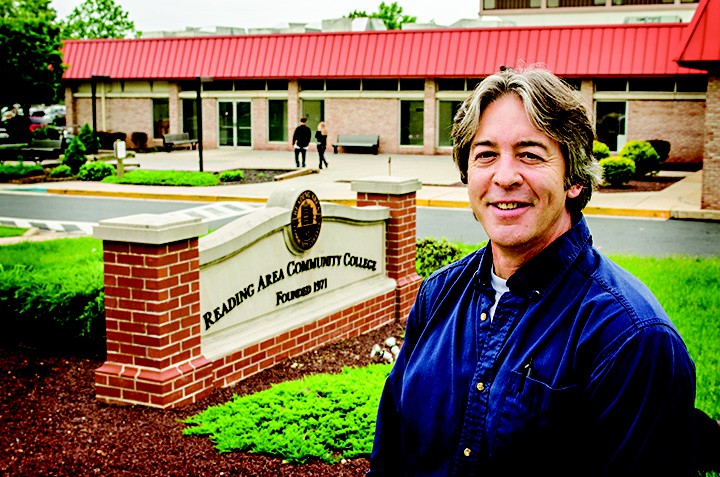
Higher education wasn’t always a priority for Jed Holzmacher of PLACE. He recalls, “I went to community college right after high school. That lasted just until intramural football was over.”
After leaving college, Holzmacher started his own electrical business in New York. But when divorce and relocation brought him and his three children to Pennsylvania, things changed. For a time he was out of work. “The electrical industry is different in Pennsylvania,” he says. “I decided to return to school for a new career.”
Working in law enforcement was something Holzmacher always thought about, since his father and brother are in that field. So he enrolled in the criminal justice program at RACC.
In going back to school, Holzmacher’s main worry was the academics. “I wasn’t worried about being an old guy in the school,” he says. “I was worried about being able to think still.” An English instructor helped to put him at ease. “Your brain will re-activate,” he remembers her telling him.
Holzmacher makes his schedule work by working night shift and taking classes during the day. “I can schedule my classes any time during the day,” he says. “I sleep a little bit here and a little bit there.” His main motivation for this hard work is his children. “My purpose is to set an example of education for my kids,” he says.
Holzmacher has this advice for other adults thinking about college: “Don’t let the fear of not knowing what school will be like stop you. There’s a feeling of accomplishment. The self-confidence that it builds for people who’ve been out of work, who’ve been down – a little of that goes a long way.”
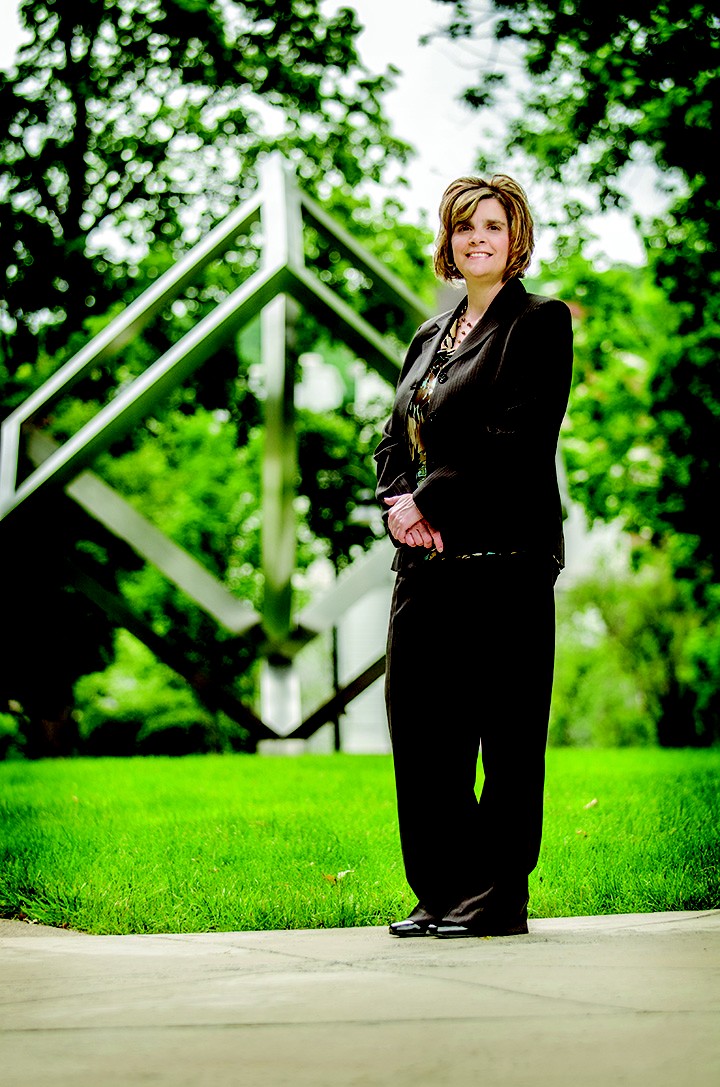
“To be honest, I didn’t like high school,” says Sheila DaDamio. “I think I just didn’t have a sense of myself when I was in school,” she recalls, “to realize how capable I was academically.”
But that began to change with a promotion she received. “For the first time, I felt a sense of someone recognizing something in me.” The support of her boss, coupled with encouragement from a friend, convinced DaDamio it was time to invest in herself. In 2008, she enrolled in the Accelerated Degree Program at Albright College.
“I think I grew to the point in my life as a woman,” she says, “where I became ready to develop Sheila. It was like the ‘Sheila project.’”
It’s a journey that hasn’t been without obstacles. “At first I was going for business,” DaDamio explains, “but I didn’t feel like it was for me.” After changing her major to psychology in November, 2011, DaDamio lost her job and her father passed away. She had to step out of the program, postponing her anticipated graduation date. “Life happened and I did what I had to do,” she says.
Today DaDamio is back in the program and enjoying the experience. “This is going to sound strange,” she says, “but I don’t find any aspect of it hard.” She describes her classes as an escape from her troubles. “Everything can be wrong,” she says, “But Albright is my happy place.”
DaDamio’s daughter Kathryn Palladino shares her enthusiasm. A 2011 Albright graduate herself, Palladino was attending the college when her mom enrolled there. “We just love Albright, both of us,” DaDamio says.
She and her daughter were “overwhelmed by the incredible support” they found from administrators and faculty, DaDamio explains. “You don’t feel like you’re lost in the sauce there. You’re an individual at Albright.”
DaDamio plans to graduate with her bachelor’s degree in psychology in December, 2013.
KUTZTOWN UNIVERSITY | 15200 Kutztown Rd. | Kutztown, PA 19530 | 610.683.4000 | Kutztown.edu PENN STATE BERKS | Tulpehocken Road | Reading, PA 19610 | 610.396.6000 | Bk.psu.edu ALVERNIA UNIVERSITY | 400 Saint Bernardine St. | Reading, PA 19607 | 1.888.ALVERNIA | Alvernia.edu READING AREA COMMUNITY COLLEGE (RACC) | 10 S. 2nd St. | Reading, PA 19603 | 610.372.4721 | Racc.edu ALBRIGHT COLLEGE | 13th & Bern Sts. | Reading, PA 19612 | 610.921.2381 | Albright.edu
BY DOROTHY LEHMAN HOERR | PHOTOS BY JOHN SECOGES
















